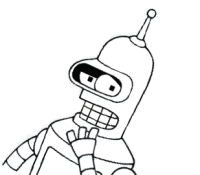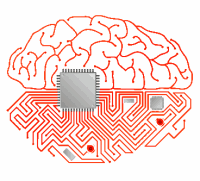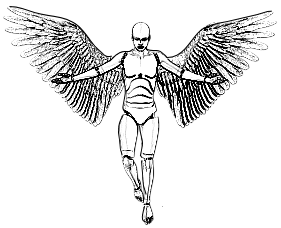
Amanda Sharkey has produced a very good paper on robot ethics which reviews recent research and considers the right way forward – it’s admirably clear, readable and quite wide-ranging, with a lot of pithy reportage. I found it comforting in one way, as it shows that the arguments have had a rather better airing to date than I had realised.
To cut to the chase, Sharkey ultimately suggests that there are two main ways we could respond to the issue of ethical robots (using the word loosely to cover all kinds of broadly autonomous AI). We could keep on trying to make robots that perform well, so that they can safely be entrusted with moral decisions; or we could decide that robots should be kept away from ethical decisions. She favours the latter course.
What is the problem with robots making ethical decisions? One point is that they lack the ability to understand the very complex background to human situations. At present they are certainly nowhere near a human level of understanding, and it can reasonably be argued that the prospects of their attaining that level of comprehension in the foreseeable future don’t look that good. This is certainly a valid and important consideration when it comes to, say, military kill-bots, which may be required to decide whether a human being is hostile, belligerent, and dangerous. That’s not something even humans find easy in all circumstances. However, while absolutely valid and important, it’s not clear that this is a truly ethical concern; it may be better seen as a safety issue, and Sharkey suggests that that applies to the questions examined by a number of current research projects.
A second objection is that robots are not, and may never be, ethical agents, and so lack the basic competence to make moral decisions. We saw recently that even Daniel Dennett thinks this is an important point. Robots are not agents because they lack true autonomy or free will and do not genuinely have moral responsibility for their decisions.
I agree, of course, that current robots lack real agency, but I don’t think that matters in the way suggested. We need here the basic distinction between good people and good acts. To be a good person you need good motives and good intentions; but good acts are good acts even if performed with no particular desire to do good, or indeed if done from evil but confused motives. Now current robots, lacking any real intentions, cannot be good or bad people, and do not deserve moral praise or blame; but that doesn’t mean they cannot do good or bad things. We will inevitably use moral language in talking about this aspect of robot behaviour just as we talk about strategy and motives when analysing the play of a chess-bot. Computers have no idea that they are playing chess; they have no real desire to win or any of the psychology that humans bring to the contest; but it would be tediously pedantic to deny that they do ‘really’ play chess and equally absurd to bar any discussion of whether their behaviour is good or bad.
I do give full weight to the objection here that using humanistic terms for the bloodless robot equivalents may tend to corrupt our attitude to humans. If we treat machines inappropriately as human, we may end up treating humans inappropriately as machines. Arguably we can see this already in the arguments that have come forward recently against moral blame, usually framed as being against punishment, which sounds kindly, though it seems clear to me that they might also undermine human rights and dignity. I take comfort from the fact that no-one is making this mistake in the case of chess-bots; no-one thinks they should keep the prize money or be set free from the labs where they were created. But there’s undoubtedly a legitimate concern here.
That legitimate concern perhaps needs to be distinguished from a certain irrational repugnance which I think clearly attaches to the idea of robots deciding the fate of humans, or having any control over them. To me this very noticeable moral disgust which arises when we talk of robots deciding to kill humans, punish them, or even constrain them for their own good, is not at all rational, but very much a fact about human nature which needs to be remembered.
The point about robots not being moral persons is interesting in connection with another point. Many current projects use extremely simple robots in very simple situations, and it can be argued that the very basic rule-following or harm prevention being examined is different in kind from real ethical issues. We’re handicapped here by the alarming background fact that there is no philosophical consensus about the basic nature of ethics. Clearly that’s too large a topic to deal with here, but I would argue that while we might disagree about the principles involved (I take a synthetic view myself, in which several basic principles work together) we can surely say that ethical judgements relate to very general considerations about acts. That’s not necessarily to claim that generality alone is in itself definitive of ethical content (it’s much more complicated than that), but I do think it’s a distinguishing feature. That carries the optimistic implication that ethical reasoning, at least in terms of cognitive tractability, might not otherwise be different in kind from ordinary practical reasoning, and that as robots become more capable of dealing with complex tasks they might naturally tend to acquire more genuine moral competence to go with it. One of the plausible arguments against this would be to point to agency as the key dividing line; ethical issues are qualitatively different because they require agency. It is probably evident from the foregoing that I think agency can be separated from the discussion for these purposes.
If robots are likely to acquire ethical competence as a natural by-product of increasing sophistication, then do we need to worry so much? Perhaps not, but the main reason for not worrying, in my eyes, is that truly ethical decisions are likely to be very rare anyway. The case of self-driving vehicles is often cited, but I think our expectations must have been tutored by all those tedious trolley problems; I’ve never encountered a situation in real life where a driver faced a clear cut decision about saving a bus load of nuns at the price of killing one fat man. If a driver follows the rule; ‘try not to crash, and if crashing is unavoidable, try to minimise the impact’, I think almost all real cases will be adequately covered.
A point to remember is that we actually do often make rules about this sort of thing which a robot could follow without needing any ethical sense of its own, so long as its understanding of the general context was adequate. We don’t have explicit rules about how many fat men outweigh a coachload of nuns just because we’ve never really needed them; if it happened every day we’d have debated it and made laws that people would have to know in order to pass their driving test. While there are no laws, even humans are in doubt and no-one can say definitively what the right choice is; so it’s not logically possible to get too worried that the robot’s choice in such circumstances would be wrong.
I do nevertheless have some sympathy with Sharkey’s reservations. I don’t think we should hold off from trying to create ethical robots though; we should go on, not because we want to use the resulting bots to make decisions, but because the research itself may illuminate ethical questions in ways that are interesting (a possibility Sharkey acknowledges). Since on my view we’re probably never really going to need robots with a real ethical sense, and on the other hand if we did, there’s a good chance they would naturally have developed the required competence, this looks to me like a case where we can have our cake and eat it (if that isn’t itself unethical).

 All I want for a Christmas is a new brain? There seems to have been quite a
All I want for a Christmas is a new brain? There seems to have been quite a 
